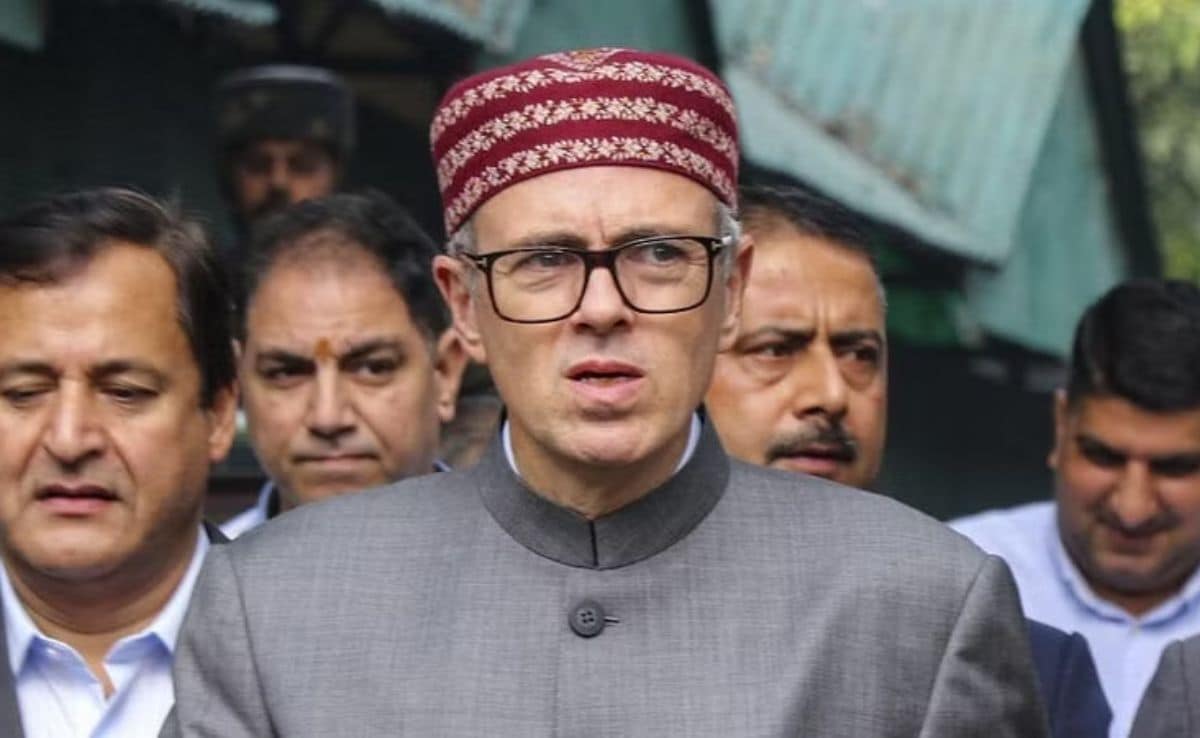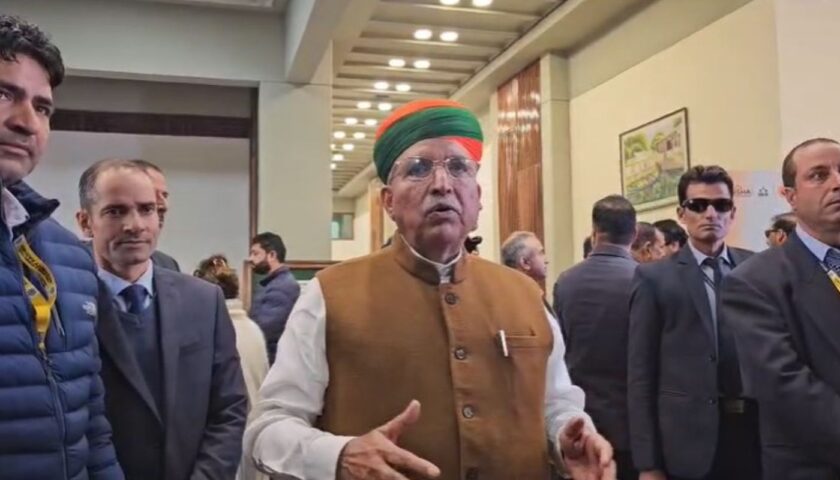Opposition Tears Into Omar Abdullah’s Move, Calling It a Betrayal of Public Trust
By: Javid Amin | 16 Aug 2025
A Campaign That Raised More Questions Than Hope
On Independence Day, Chief Minister Omar Abdullah announced what he described as a “massive democratic mobilization”—a door-to-door signature campaign across all 90 Assembly constituencies of Jammu & Kashmir. The campaign, planned to run over eight weeks, seeks to gather lakhs of signatures demanding the restoration of J&K’s statehood, a promise that has remained unfulfilled since the abrogation of Article 370 and the downgrading of the state into a Union Territory in August 2019.
But what Omar Abdullah projected as a grassroots movement of dignity quickly drew sharp criticism from opposition parties. Leaders across the spectrum branded the move as “theatrics,” “tokenism,” and a “betrayal of the people’s mandate.”
The heart of the opposition’s critique is simple: an elected government does not need symbolic signature drives—it needs to act through constitutional, legislative, and political means.
Opposition Firestorm: Who Said What?
Waheed Para (PDP): “A Retreat and Betrayal”
Waheed Para of the People’s Democratic Party (PDP) minced no words.
-
He called the campaign a “retreat and betrayal”, accusing Omar Abdullah of normalizing August 5, 2019, and reducing the existential struggle for statehood to a symbolic performance.
-
Para argued that the NC government was “trivializing a historic injustice” by outsourcing responsibility to ordinary people, instead of using its constitutional power to challenge Delhi directly.
“People voted in 2024 because they wanted representation, not rhetoric. Asking them to sign another petition is not leadership—it is abdication.”
Sajad Lone (People’s Conference): “Nothing But Theatrics”
Sajad Lone, chairman of the People’s Conference (PC), described Omar’s move as “political theatrics of the highest order.”
-
He questioned why Omar Abdullah, despite having an Assembly majority, refused to pass a formal resolution demanding statehood.
-
Lone argued that resolutions carry constitutional dignity and political weight, while signatures are legally meaningless.
-
He also warned that such tactics risk turning popular anger into majoritarian pressure campaigns aimed at influencing the Supreme Court, undermining judicial independence.
“You don’t run governments through signatures. You run them through institutions.”
Inam Un Nabi (Awami Itihaad Party): “A Shameful Confession of Irrelevance”
Independent leader Inam Un Nabi went further, branding the campaign a “shameful confession of political irrelevance.”
-
He accused the NC of surrendering to the BJP’s narrative and reducing itself to an NGO-style campaigner rather than a ruling party.
-
Nabi said the move symbolized the collapse of political courage in J&K, where leaders were passing the buck back to the people instead of taking responsibility.
Other Voices of Opposition
Beyond these three, criticism came from across the political spectrum:
-
Altaf Bukhari (Apni Party): Accused Omar Abdullah of “betraying voters’ mandate”, saying people voted for action, not tokenism.
-
Mehbooba Mufti (PDP): Warned that the NC’s move may be a “calculated distraction to shield the BJP”, shifting the debate from Delhi’s obligations to hollow exercises in Srinagar.
-
CPI(M) Leaders: Emphasized that the restoration of statehood is a constitutional and parliamentary question, not something to be settled through street petitions.
Omar Abdullah’s Justification: Why Signatures, Why Now?
Omar Abdullah defended his move with passion:
-
He announced the campaign during his Independence Day address, invoking the Supreme Court’s eight-week window to respond on the statehood issue.
-
He claimed the campaign would “raise voices from every village to Delhi”, proving to the world that the demand for statehood is unanimous and unstoppable.
-
Omar promised to submit the signatures before the Supreme Court as evidence of public will—framing it as a moral pressure tactic rather than a legal solution.
The Constitutional Question: Symbolism vs. Substance
Critics point out a fundamental flaw: signature campaigns have no legal force in India’s constitutional framework.
-
Assembly Resolutions: A state legislature can pass a resolution demanding statehood or constitutional changes—such moves carry formal dignity and force Delhi to respond politically.
-
Parliamentary Debates: MPs can introduce bills or resolutions, which can compel action from the Union government.
-
Judicial Petitions: Legal challenges, backed by elected governments, can carry far greater weight than symbolic campaigns.
By contrast, signature campaigns are tools of civil society movements, not ruling governments. When leaders in power adopt them, it appears as though they are outsourcing their own responsibility.
The Opposition’s Larger Argument: Abdication of Leadership
The opposition’s deeper critique is not just about tactics but about political accountability:
-
The NC won the 2024 Assembly election largely on the plank of restoring statehood.
-
Voters already gave their mandate—a mandate that does not require another round of signatures.
-
By resorting to symbolic politics, Omar Abdullah is accused of dodging hard confrontation with Delhi and hiding behind the people’s backs.
In effect, the opposition claims: the government is behaving like an NGO, not like a state.
Public Perception: Between Hope and Cynicism
Reactions on the ground are mixed.
-
Some see the campaign as a creative way to unify voices and keep statehood at the top of the agenda.
-
Others dismiss it as “wasting time and energy”, noting that people already “signed with their votes” in 2024.
-
Many young Kashmiris, especially students, are deeply cynical. They see this as proof that even elected governments are powerless against Delhi, leaving them alienated from both democracy and leadership.
Historical Lessons: How Statehood Battles Are Really Won
Across India, battles for statehood—whether in Telangana, Uttarakhand, or Goa—were never won through signature drives. They were achieved through:
-
Legislative resolutions and bills in Parliament.
-
Mass mobilization backed by consistent parliamentary pressure.
-
Firm bargaining with the Centre.
By comparison, Omar Abdullah’s strategy risks looking like a performance of politics, rather than the practice of it.
Bottom-Line: Symbol or Surrender?
The signature campaign on J&K’s statehood has opened up a fierce debate about the nature of politics in a post-370 Kashmir.
-
To supporters, it is a bold attempt to show Delhi the scale of public demand.
-
To critics, it is a distraction, a betrayal, and a confession of helplessness from those who promised to lead.
Either way, one truth stands out starkly: the people of J&K already signed once—with their votes. What they seek now is not symbolic gestures, but decisive action.




